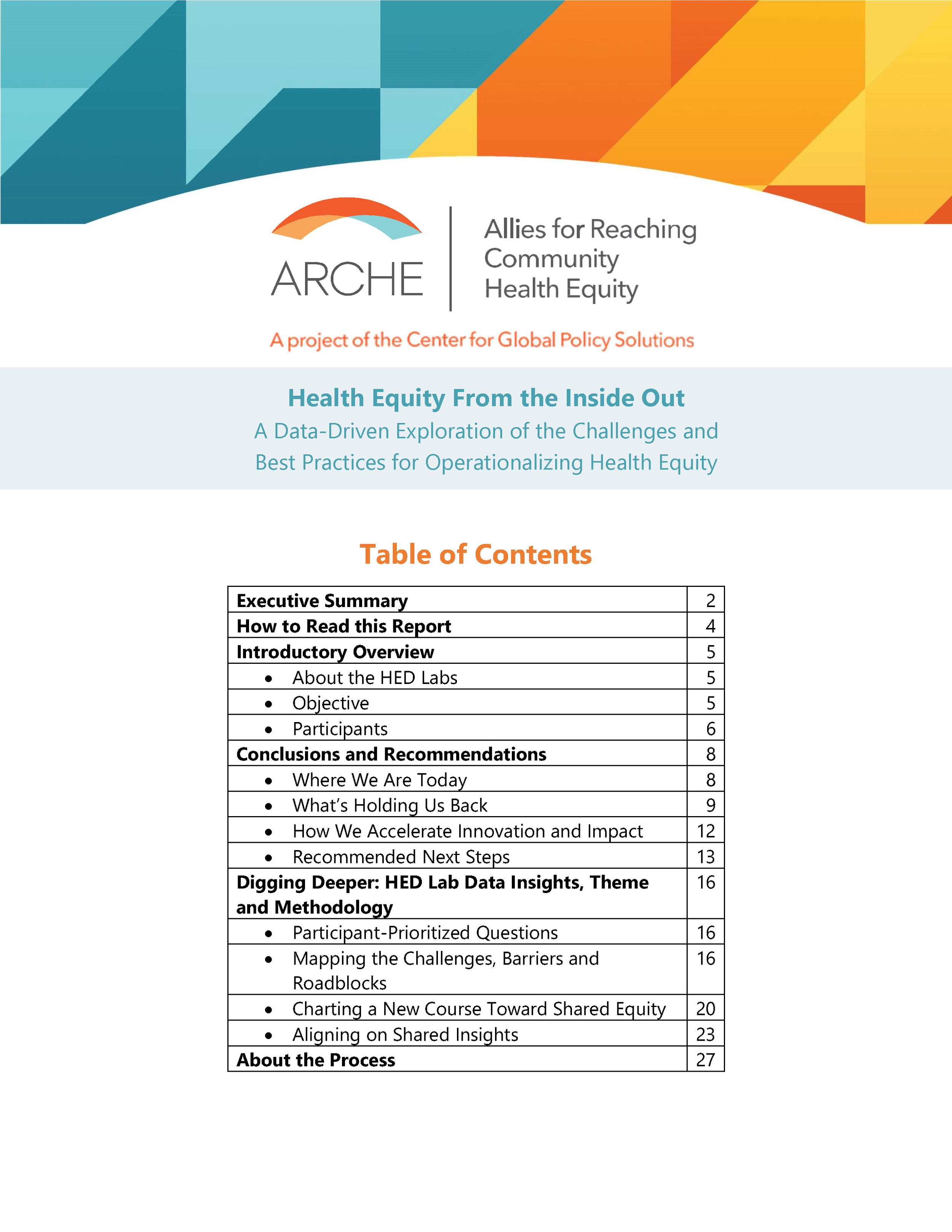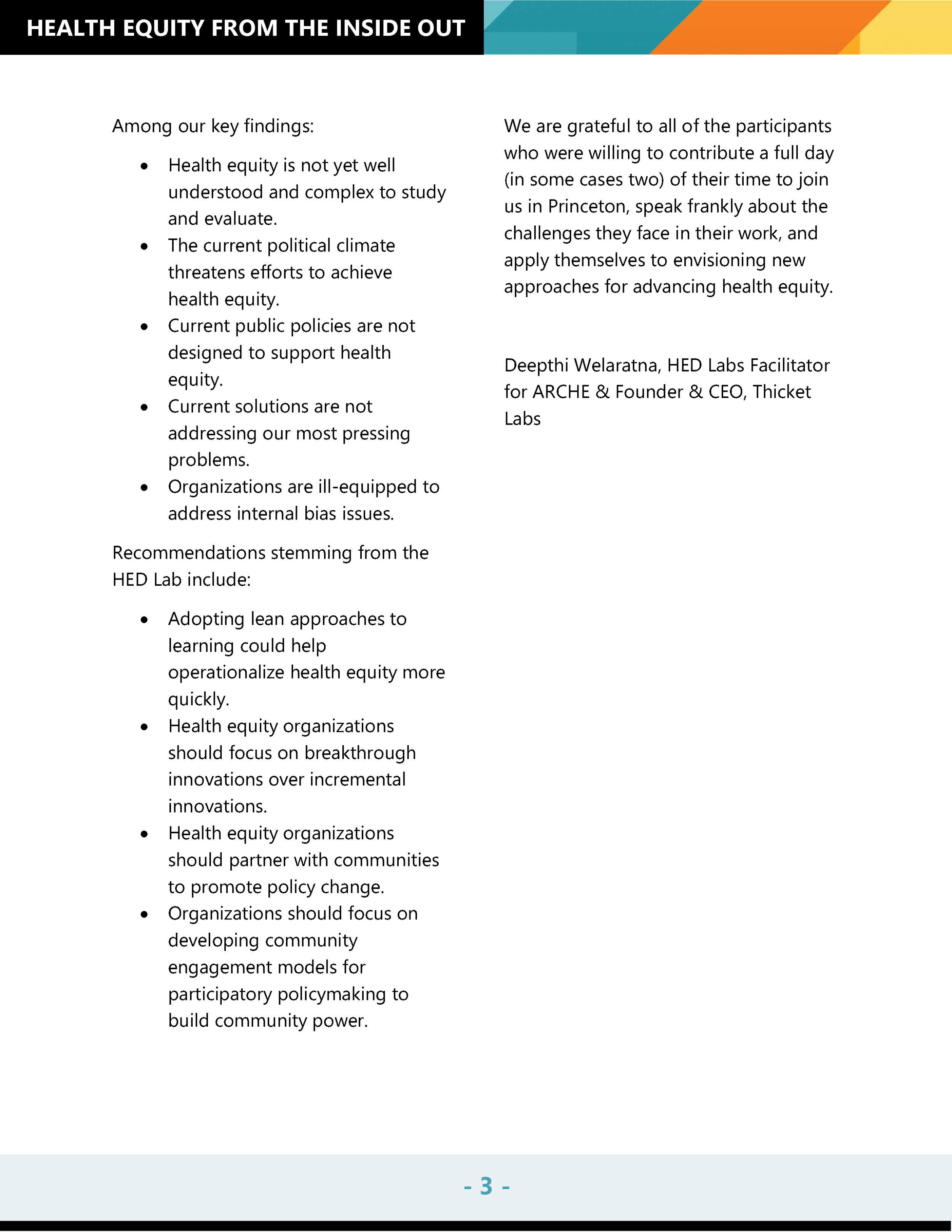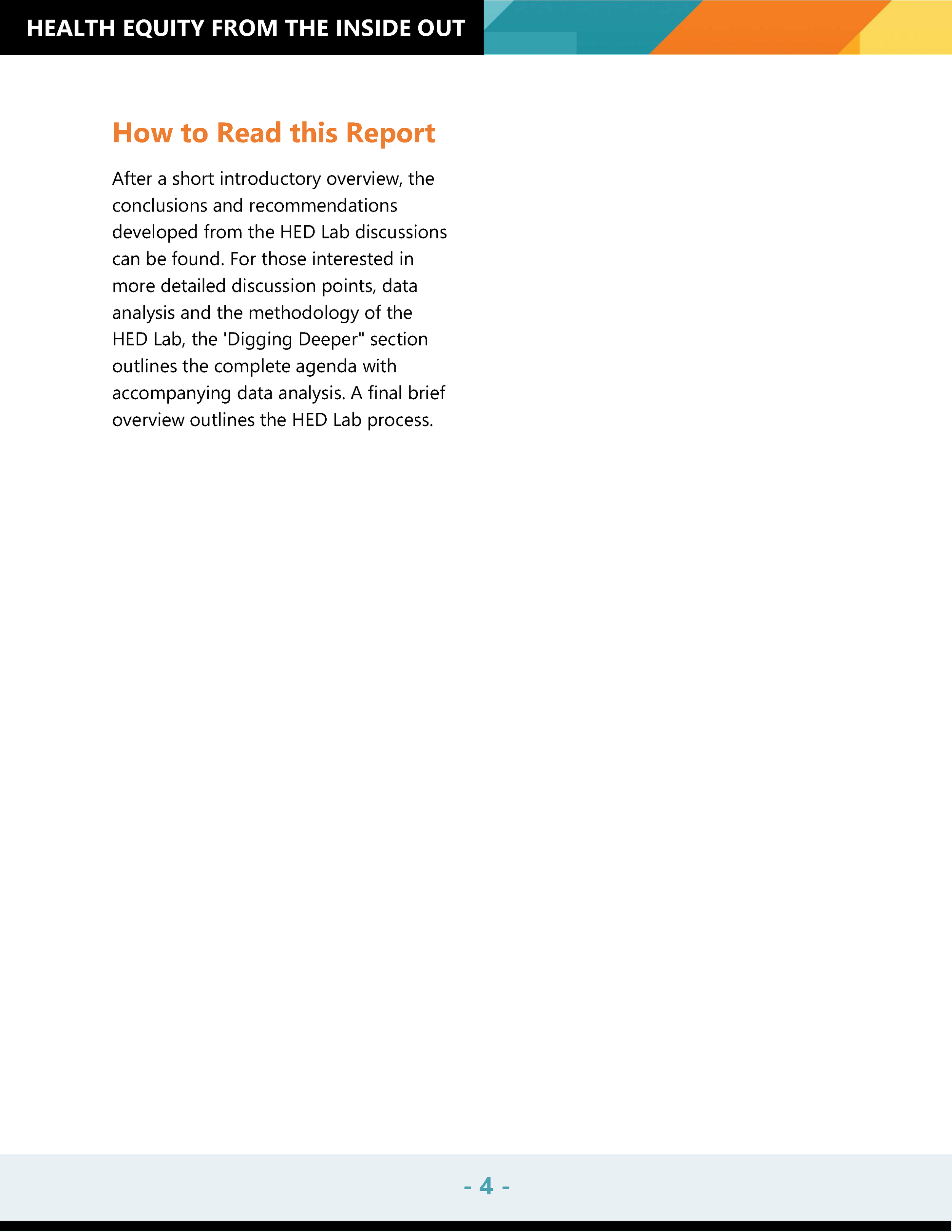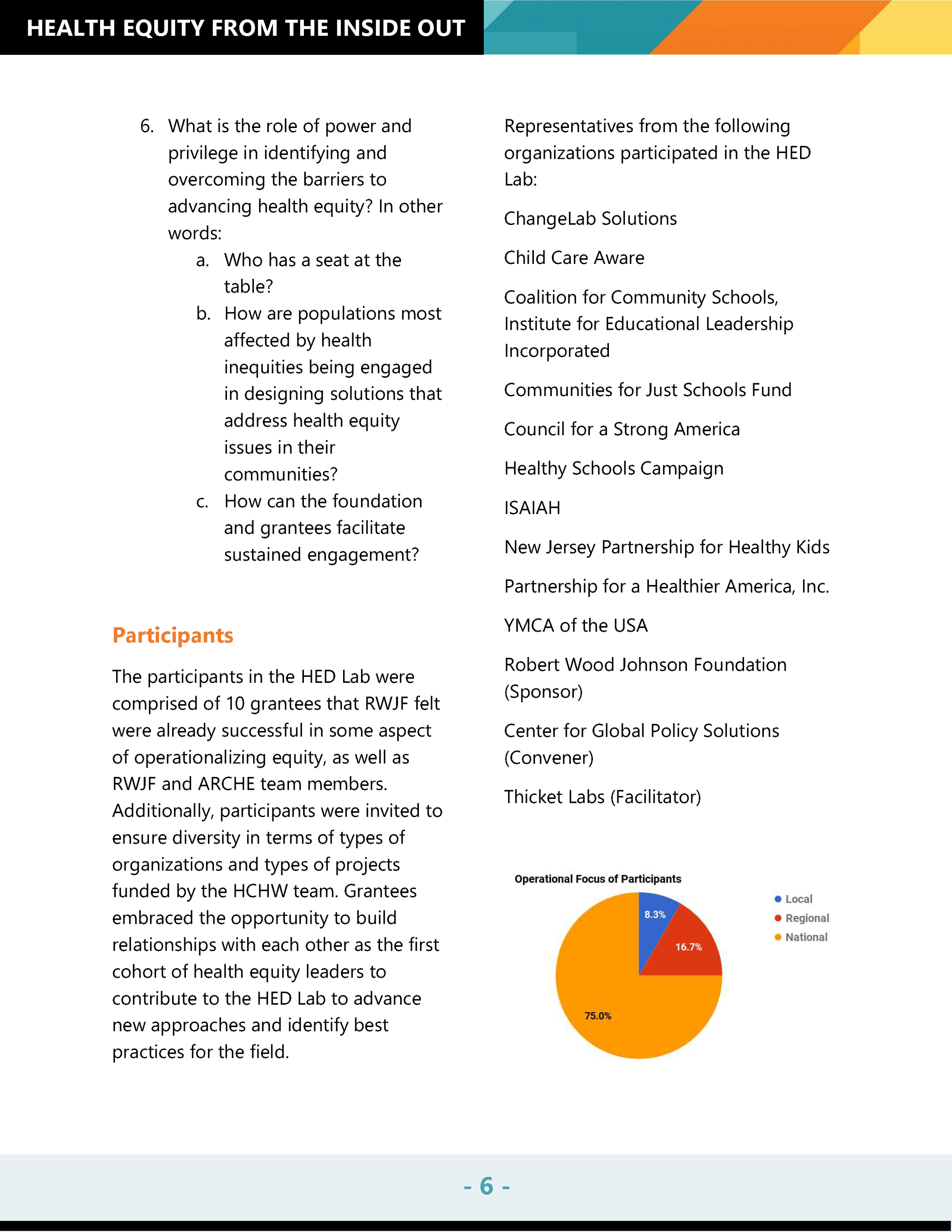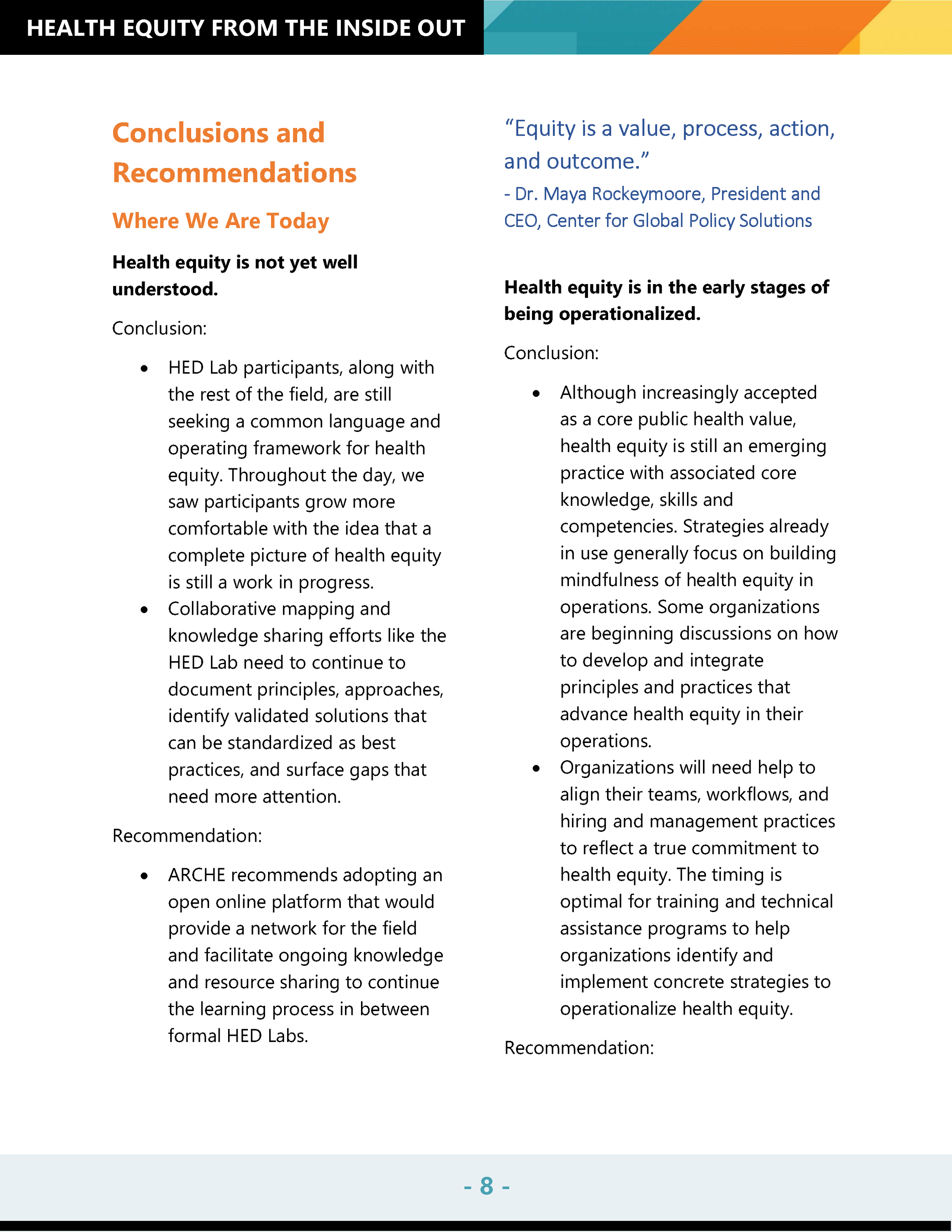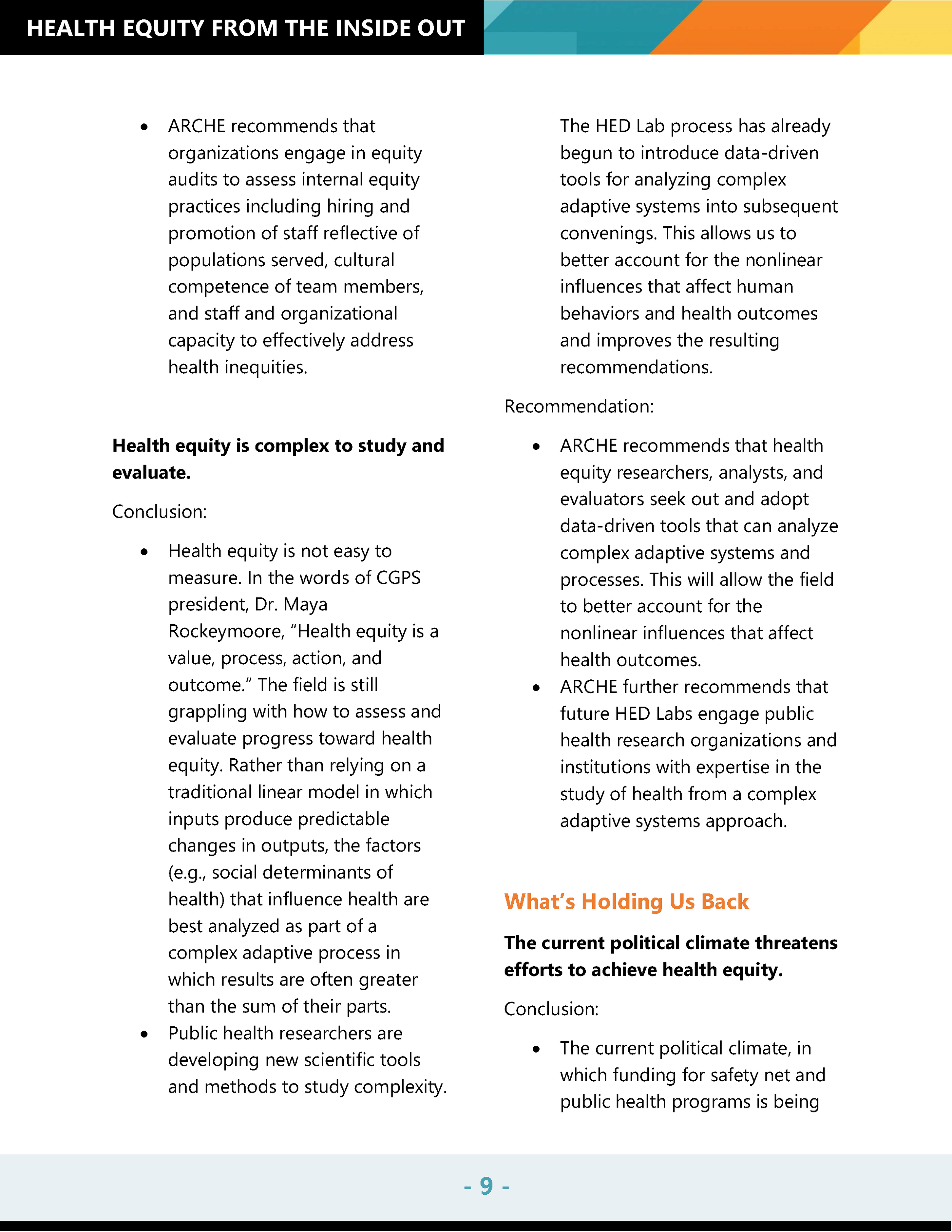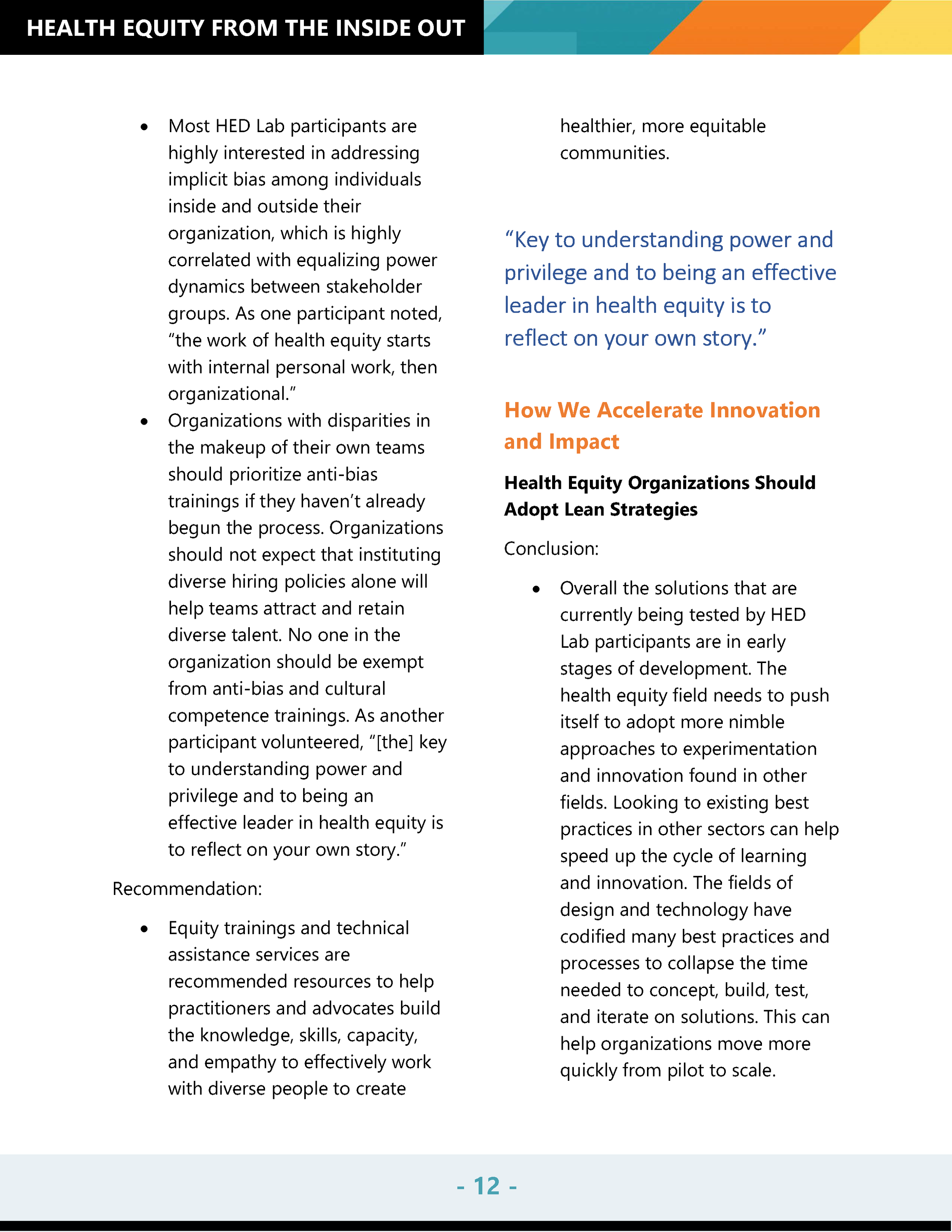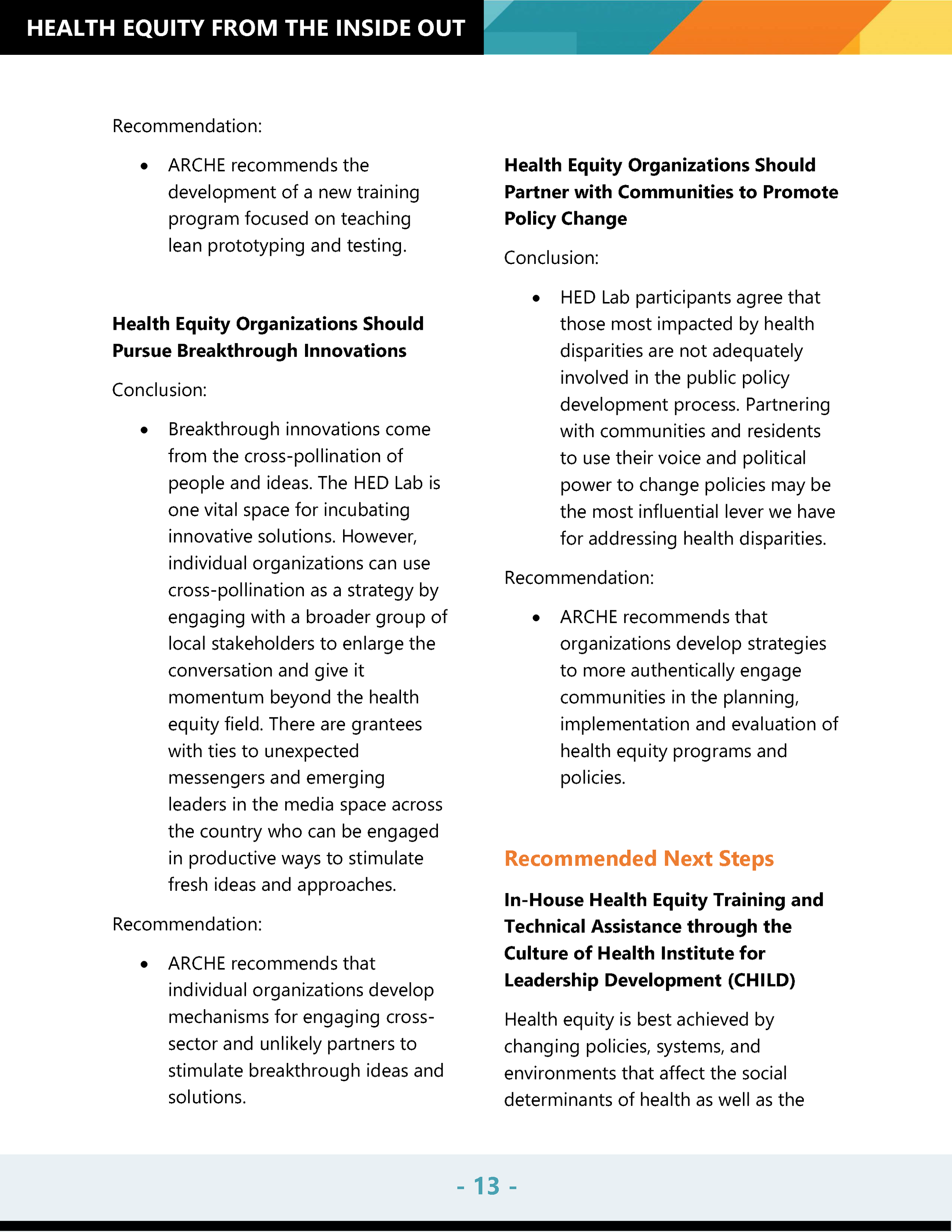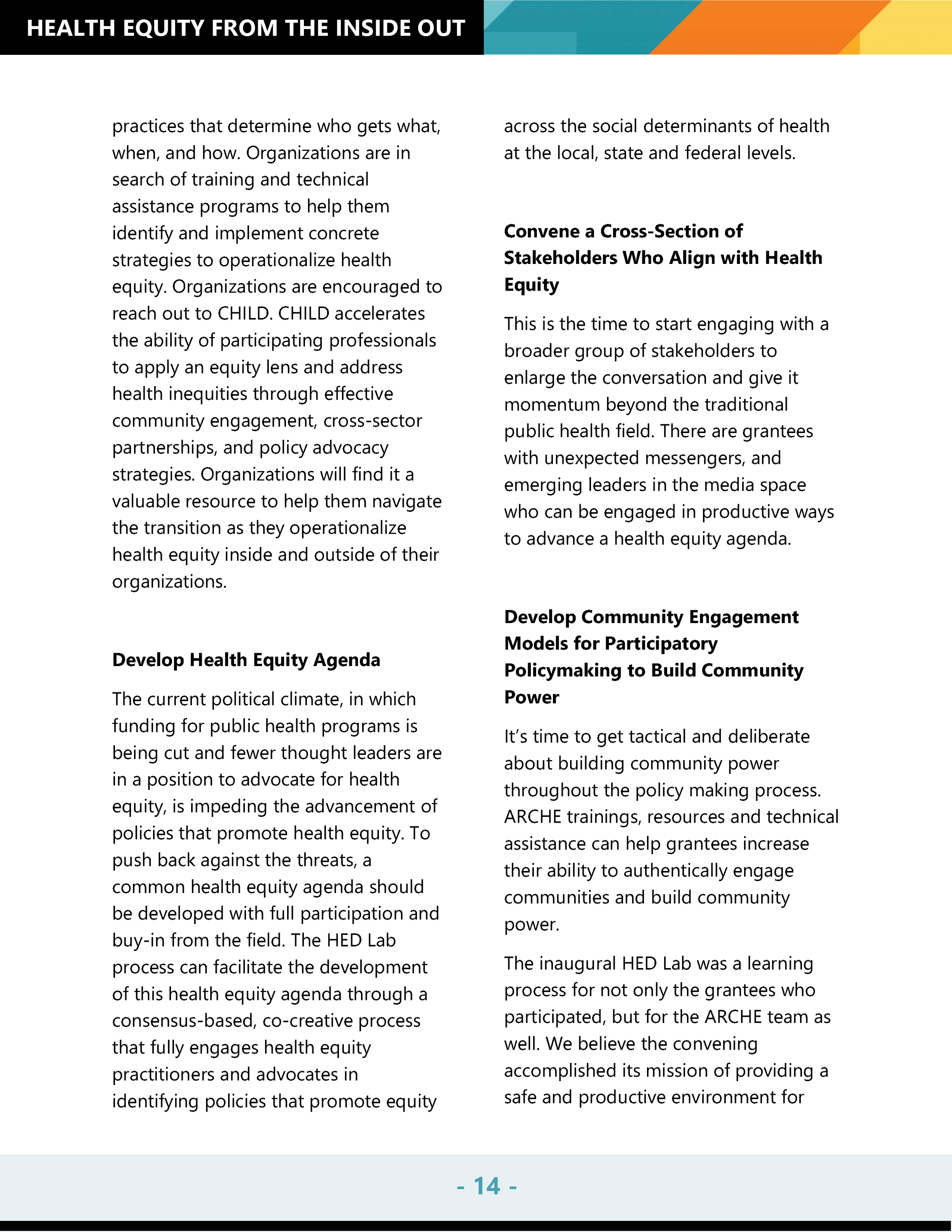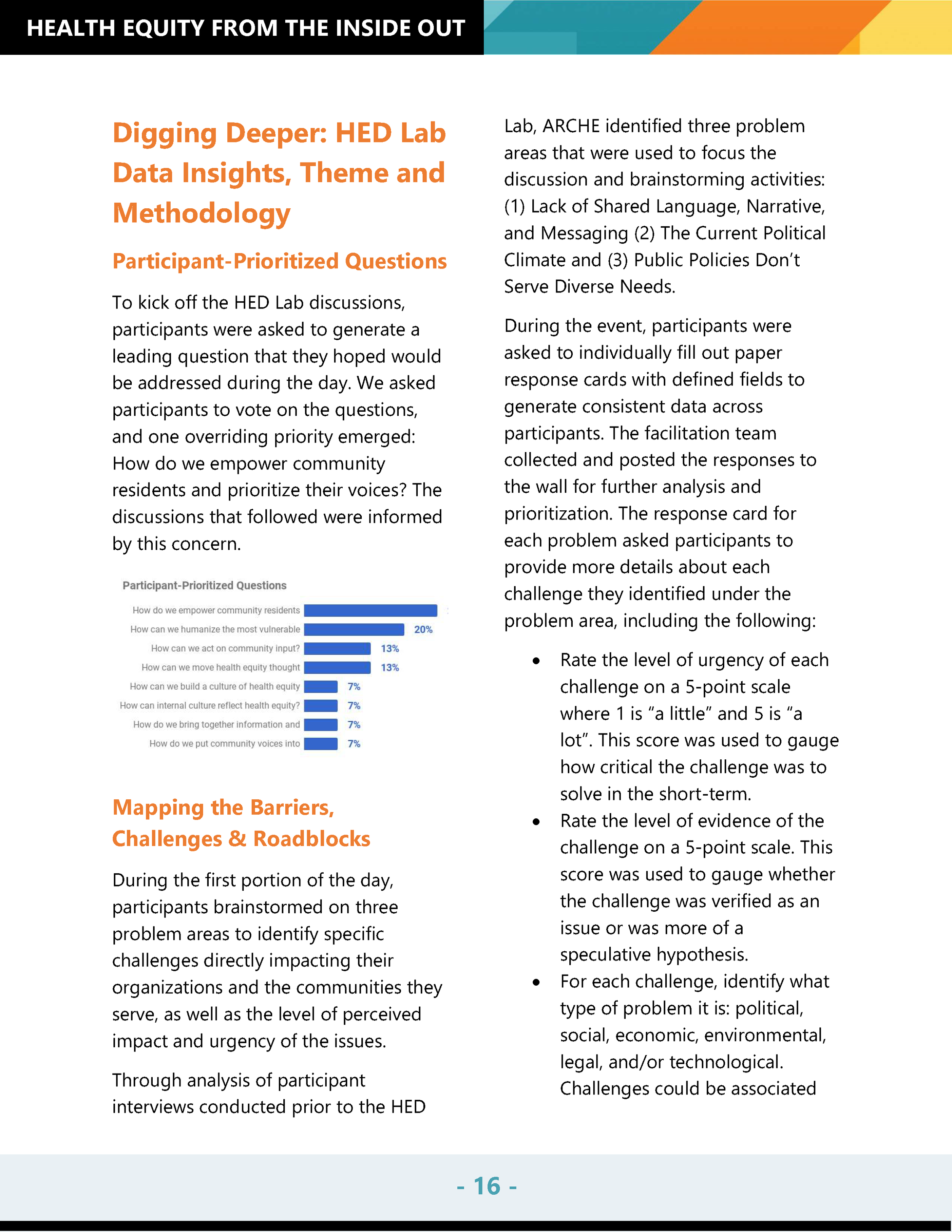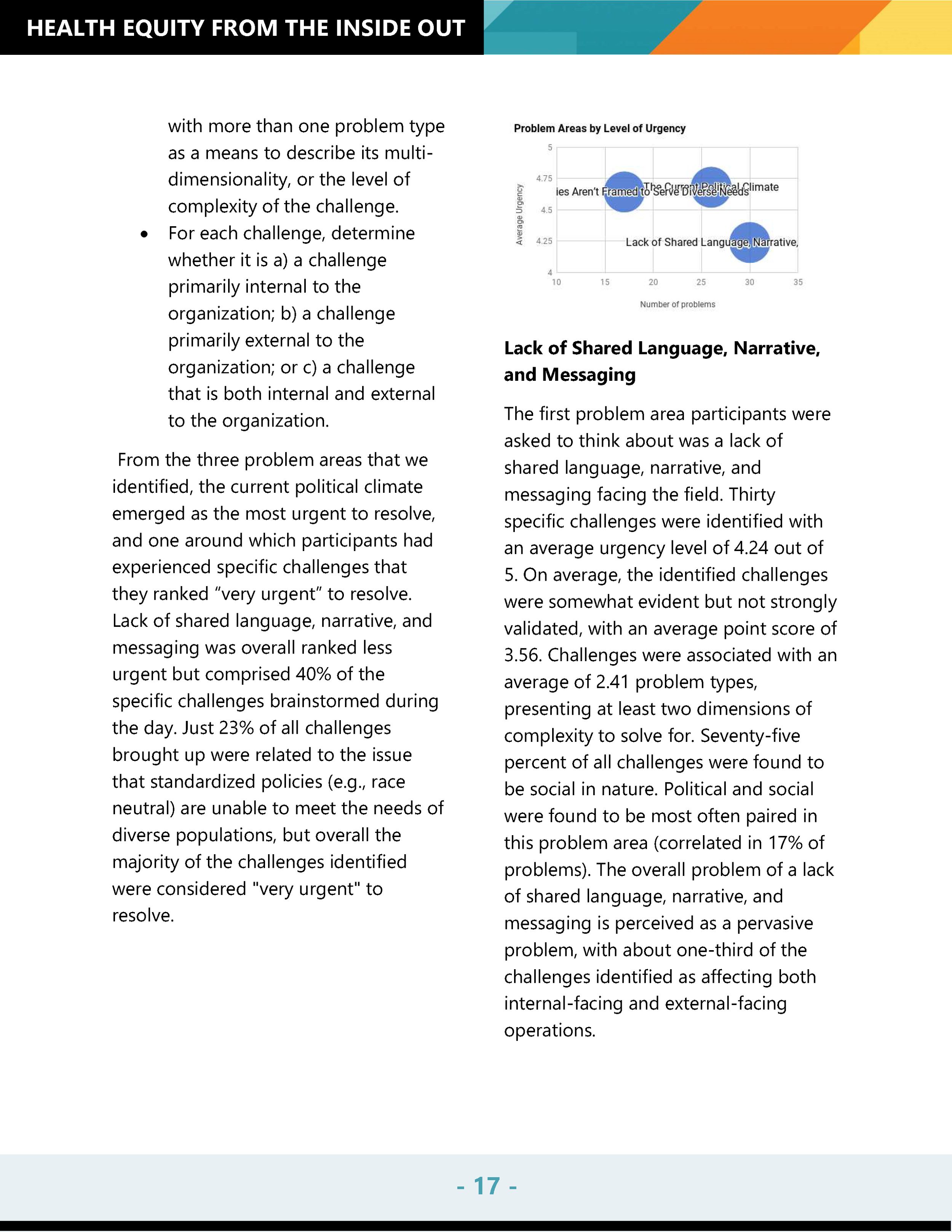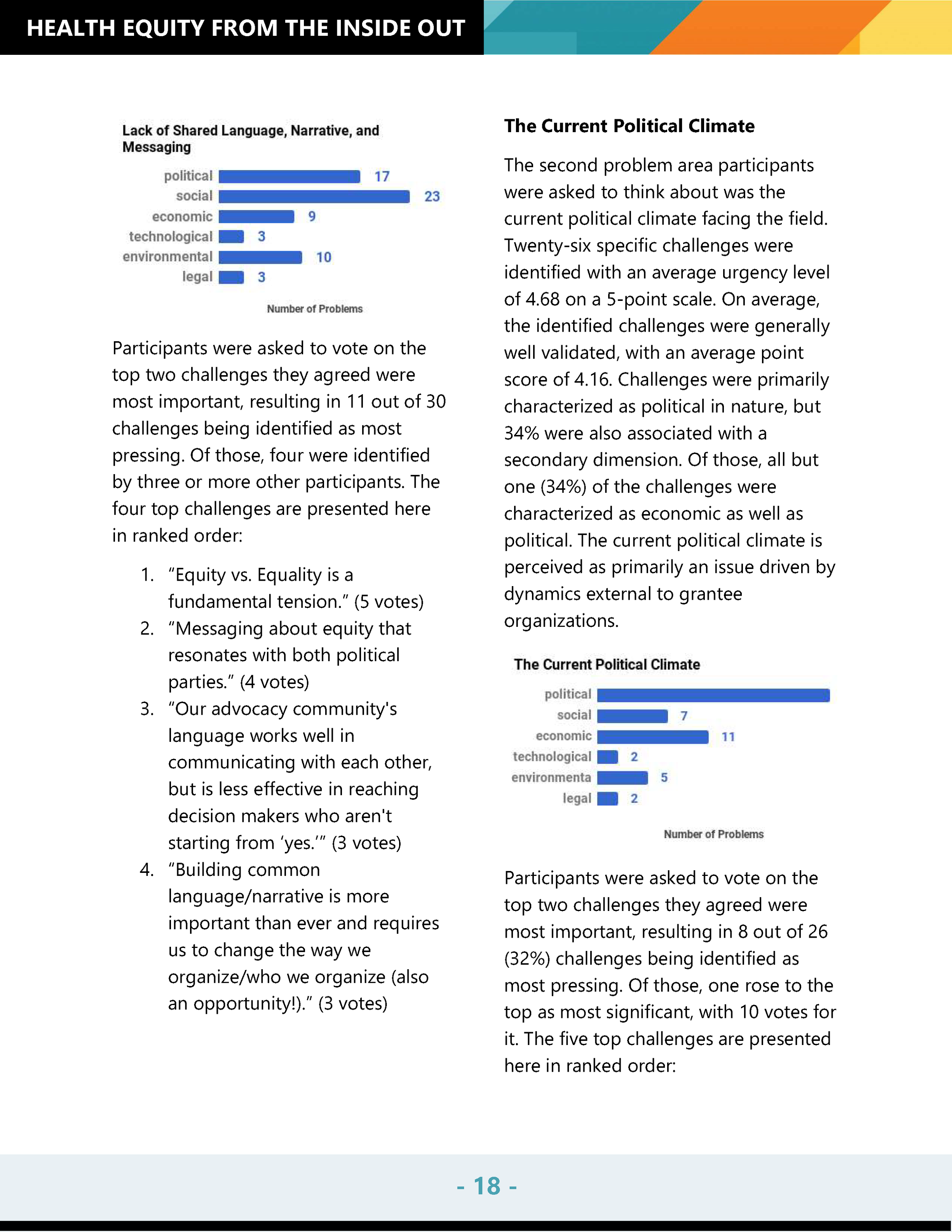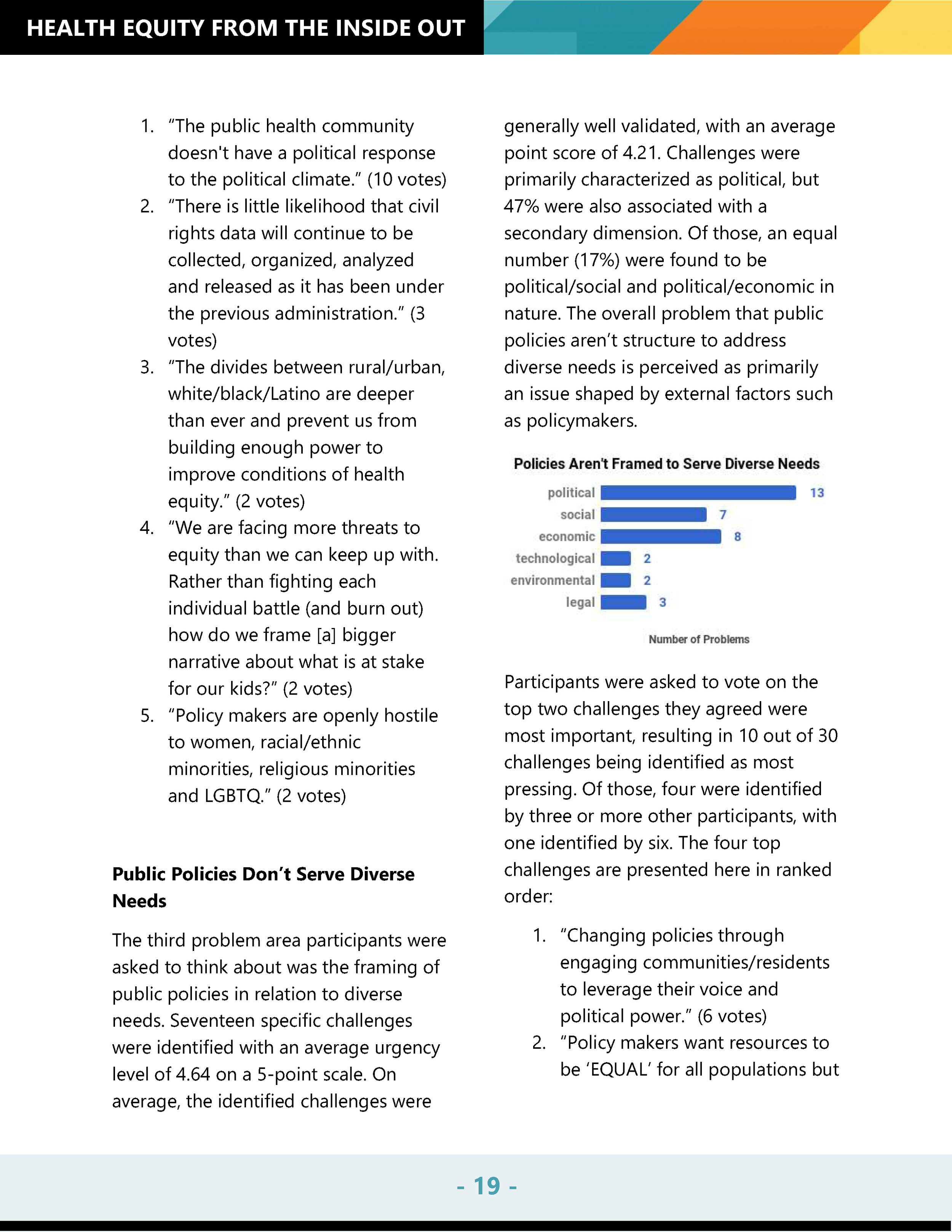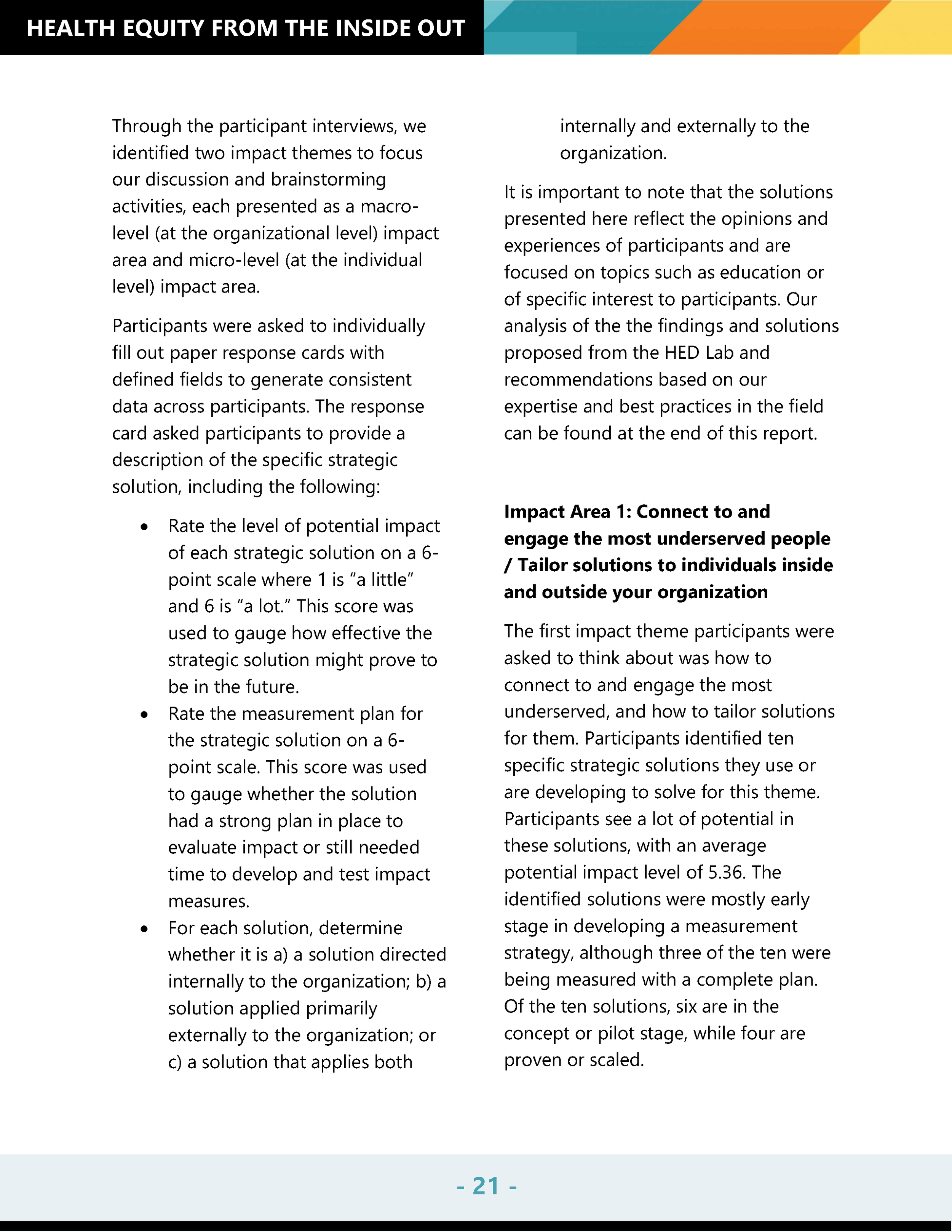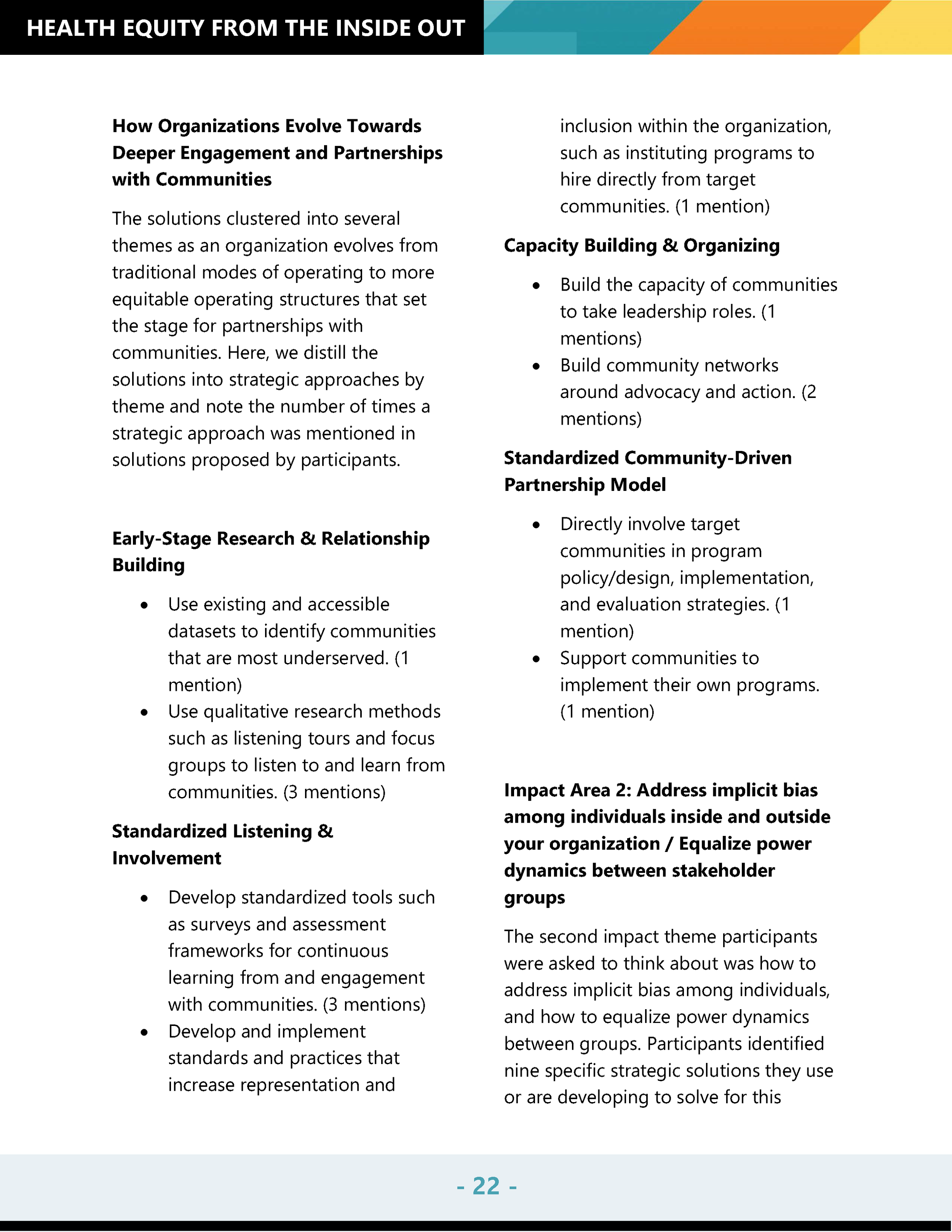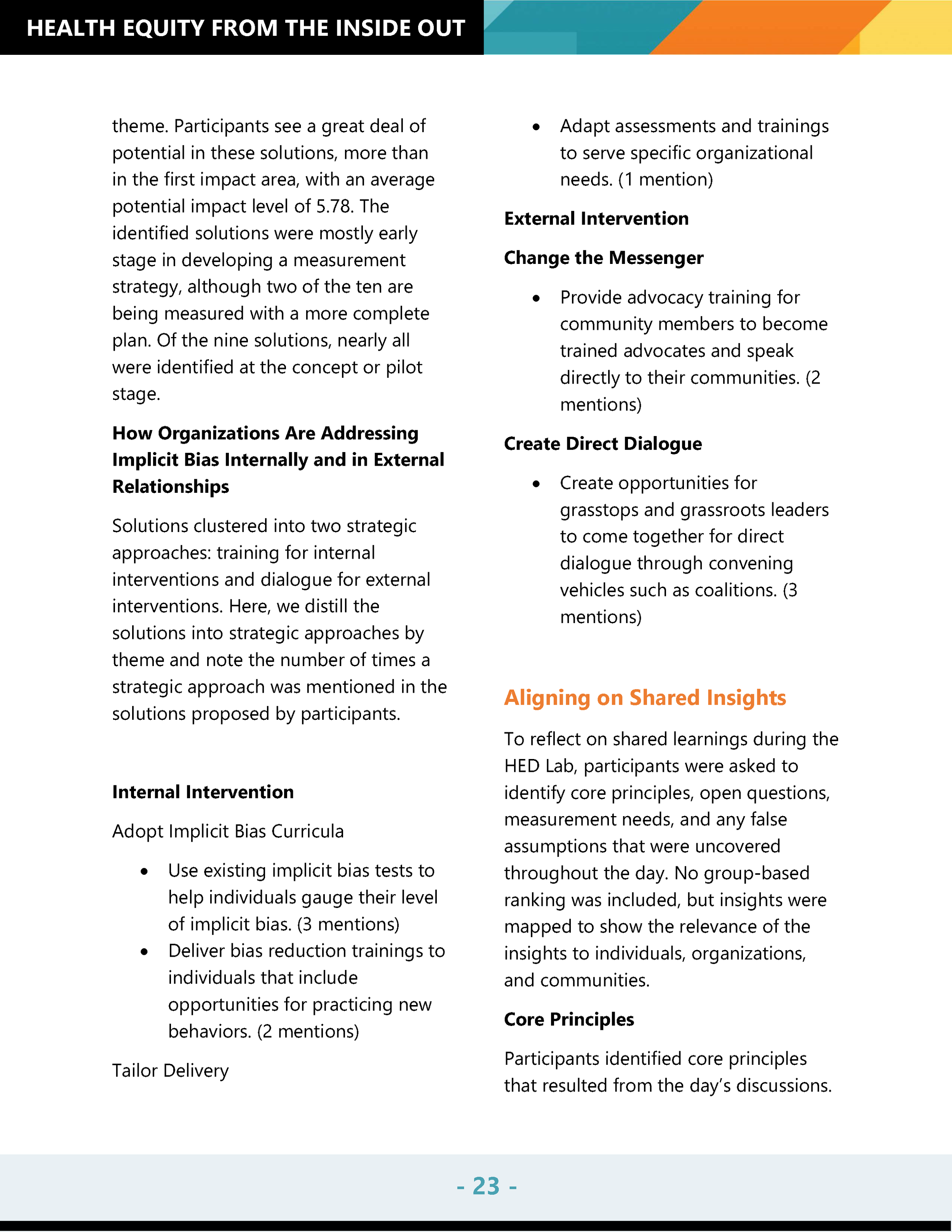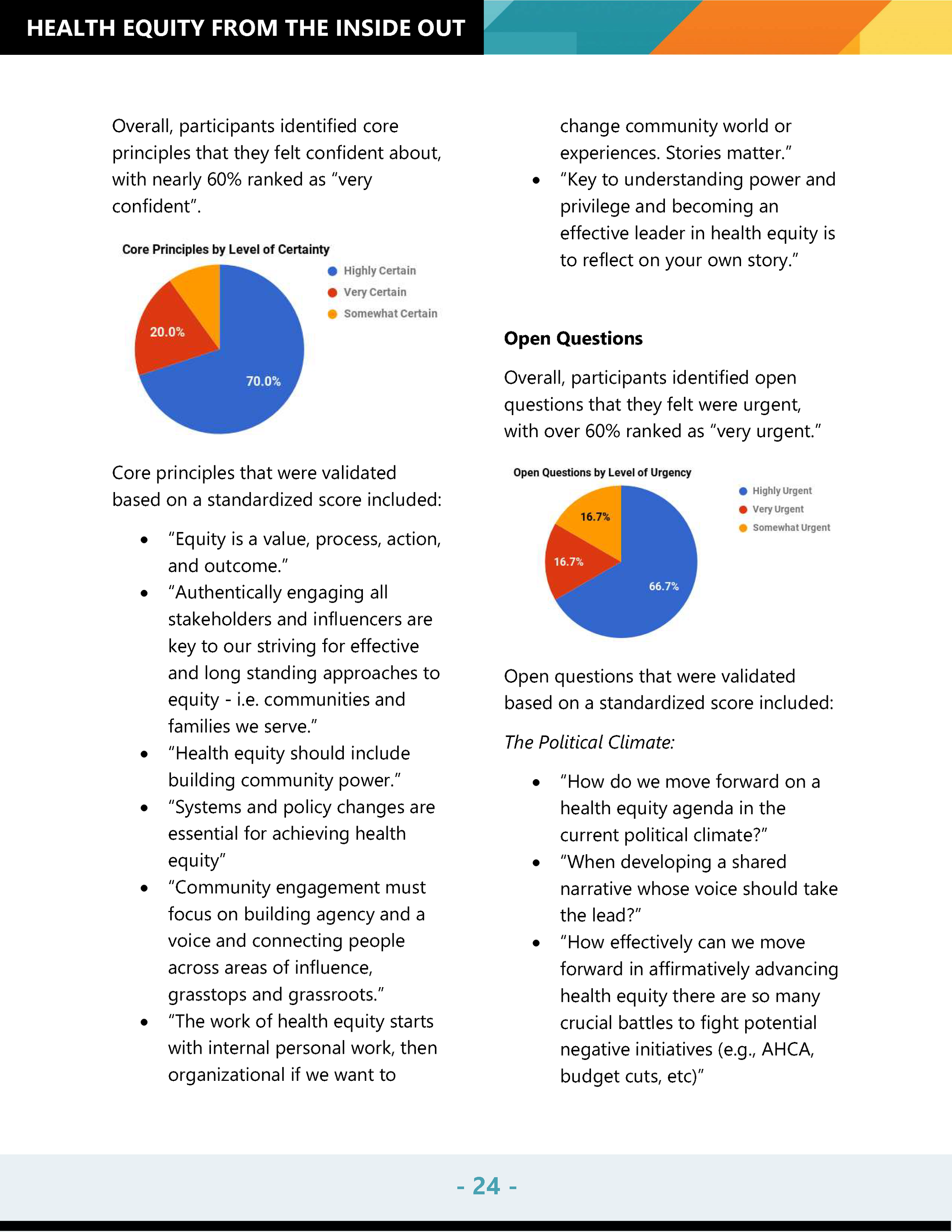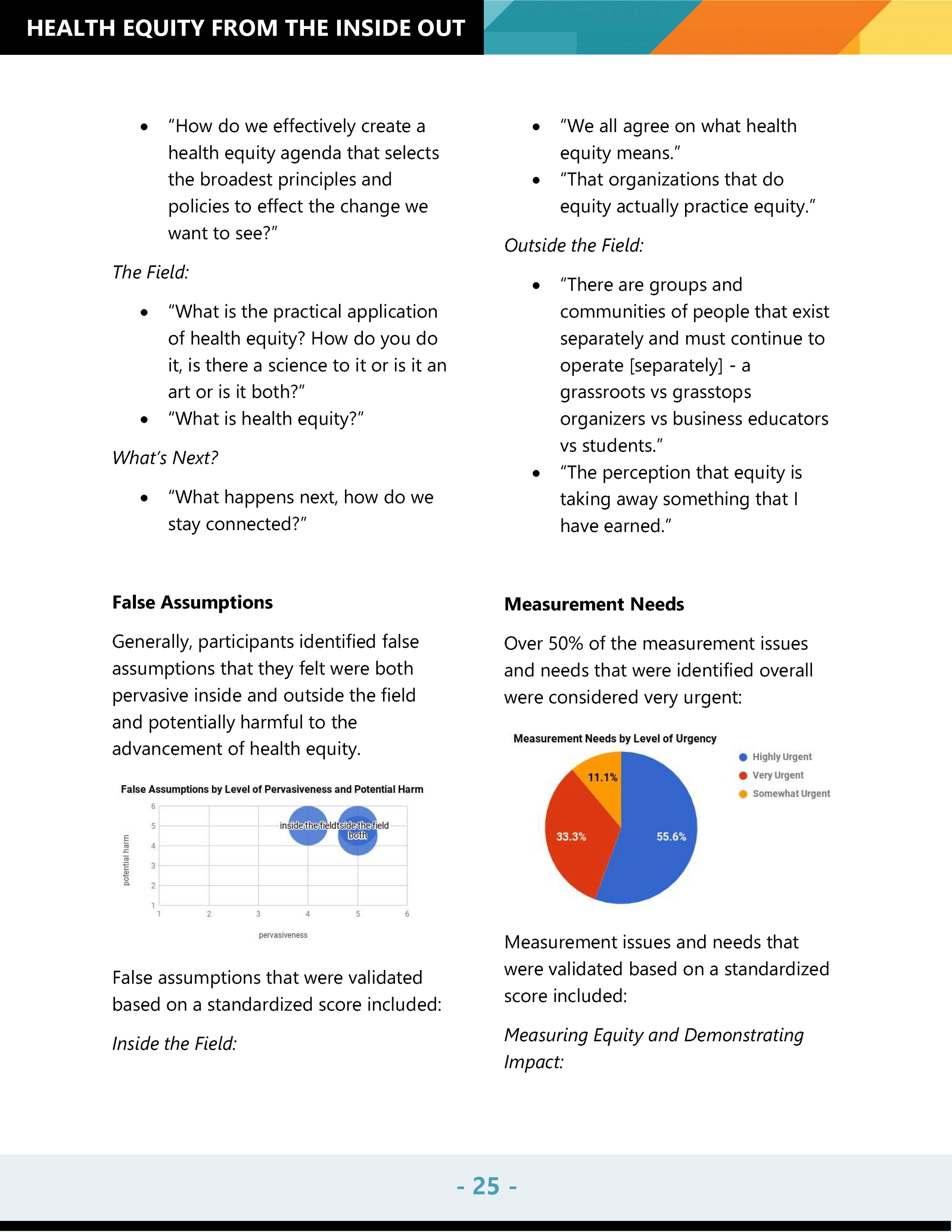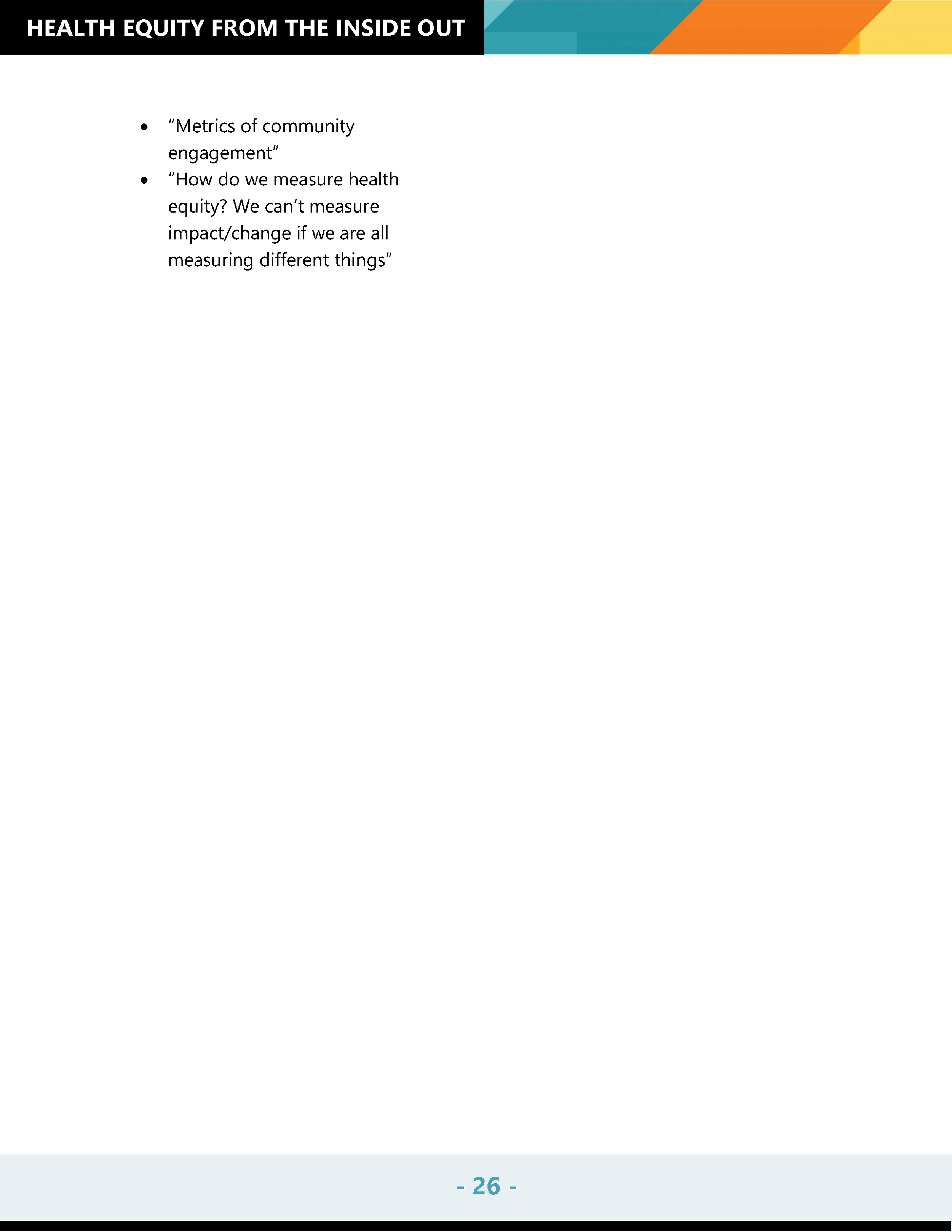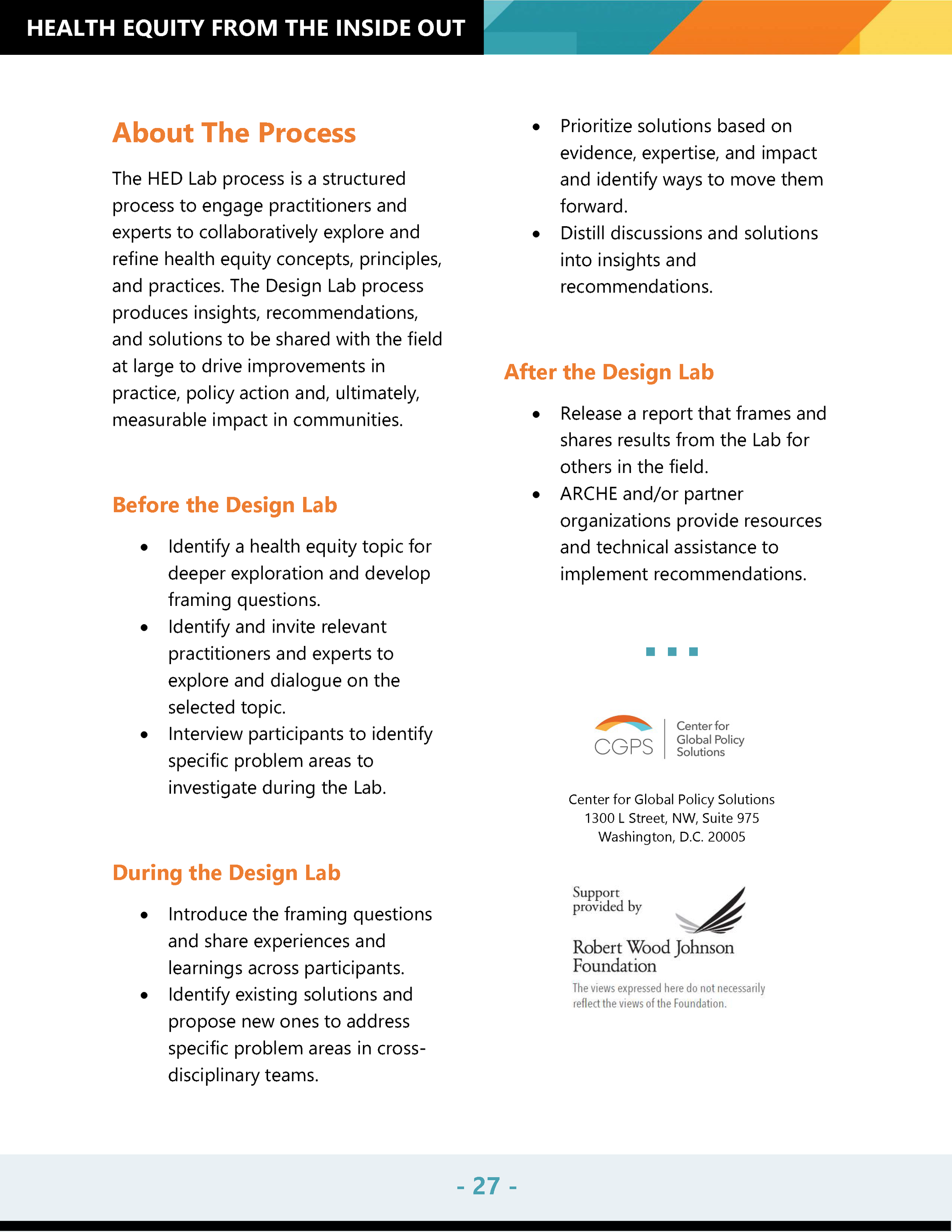The Center for Global Policy Solutions
Health equity remains one of the most persistent challenges within the public health domain, compounded by complex socio-economic factors such as gender pay and wealth inequities. Addressing these issues requires innovative thinking and collaborative efforts that cut across disciplines and sectors. I led a team at Thicket Labs to create a conducive environment for diverse stakeholders to share knowledge, develop actionable recommendations, and agree on a unified policy agenda to advance health equity.
Role
Lead facilitator and team lead as Founder and CEO of Thicket Labs
Client
The Center for Global Policy Solutions and the Robert Wood Johnson Foundation
Project Focus
Social innovation workshop program
Field mapping and information design
Strategic communications
Deliverables
Workshop Series
Post-event Summaries and Reports
One-Day Strategy Summit


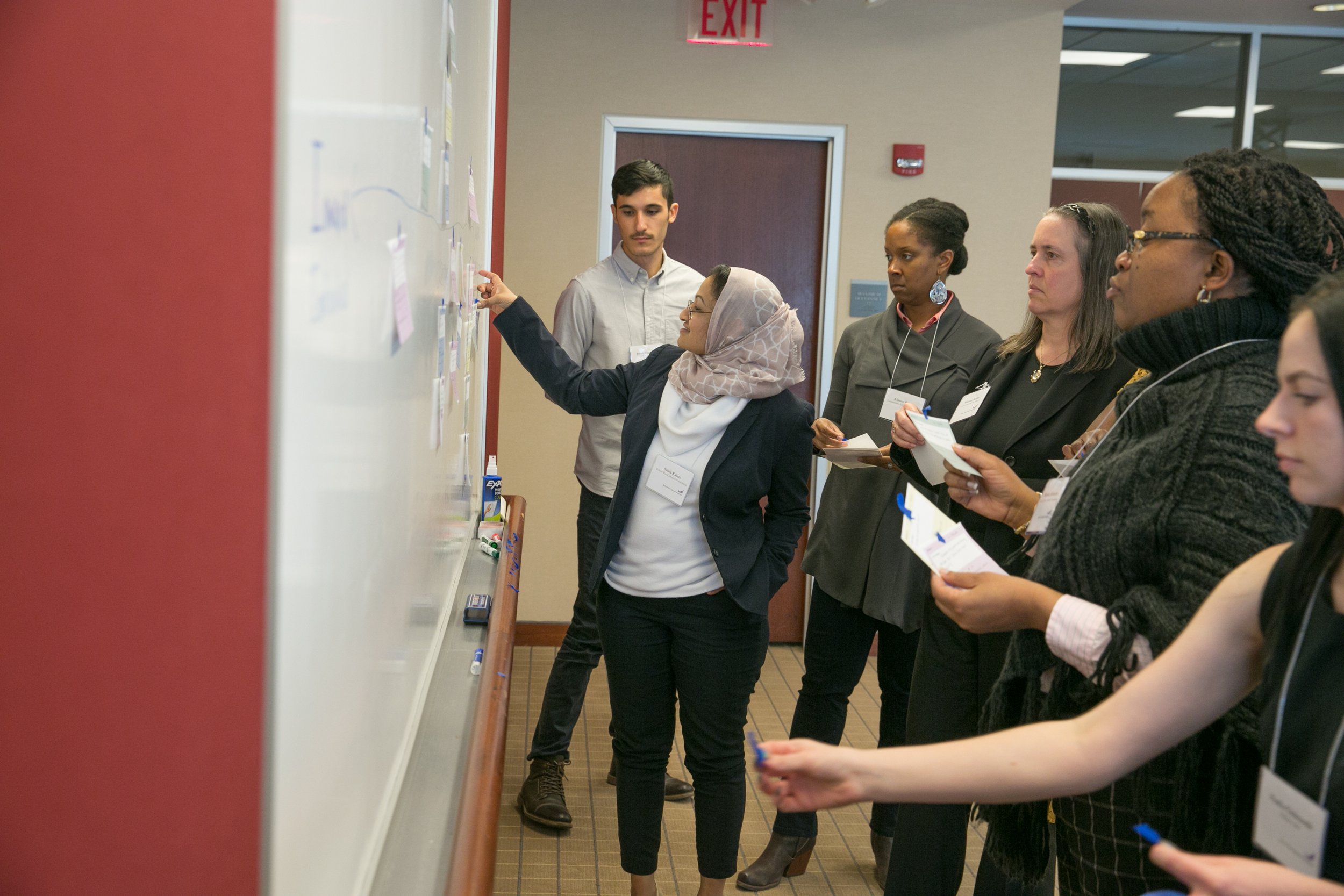
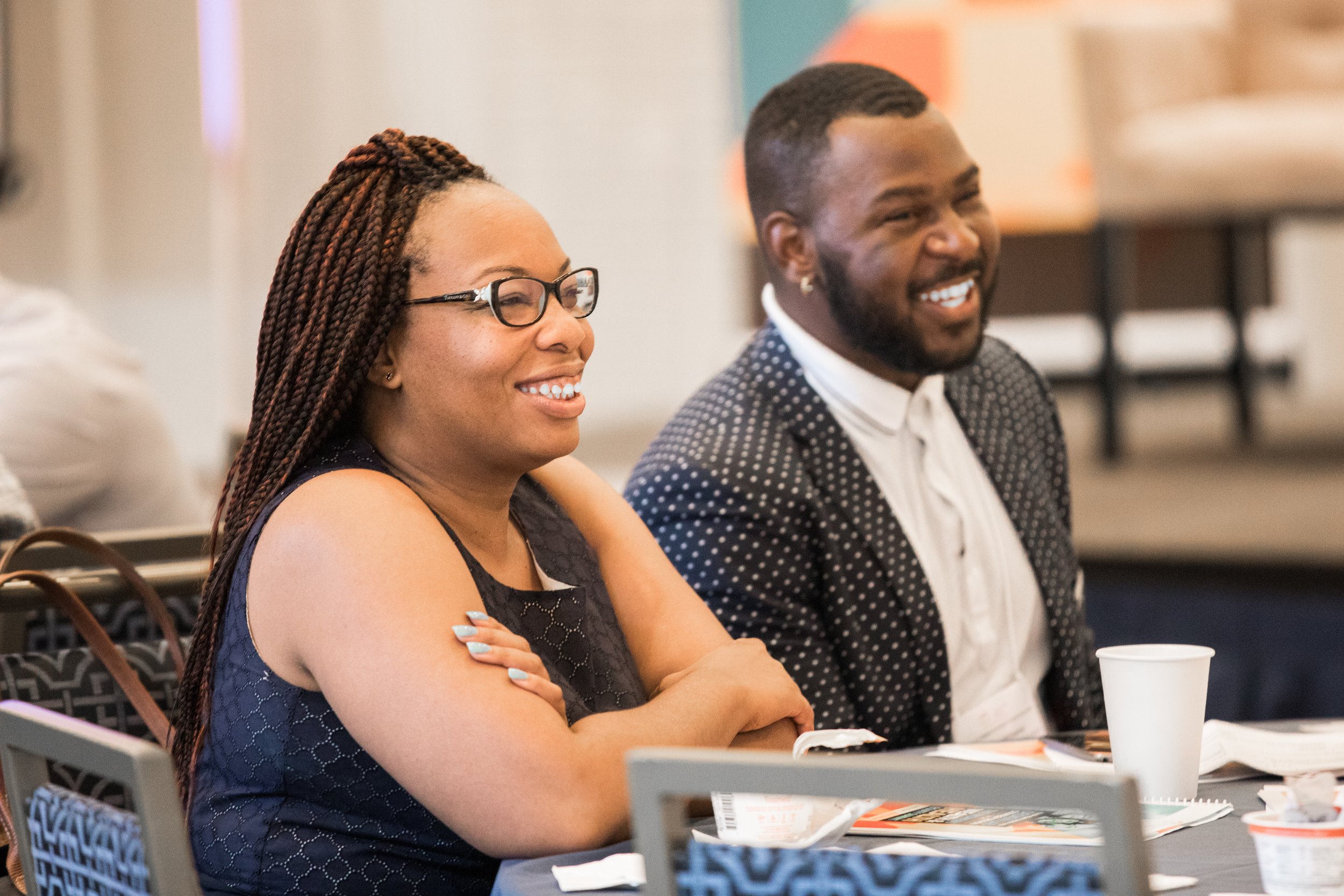

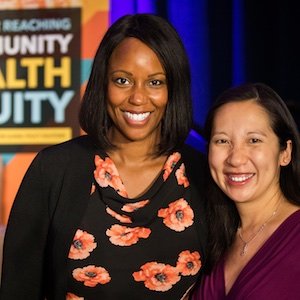


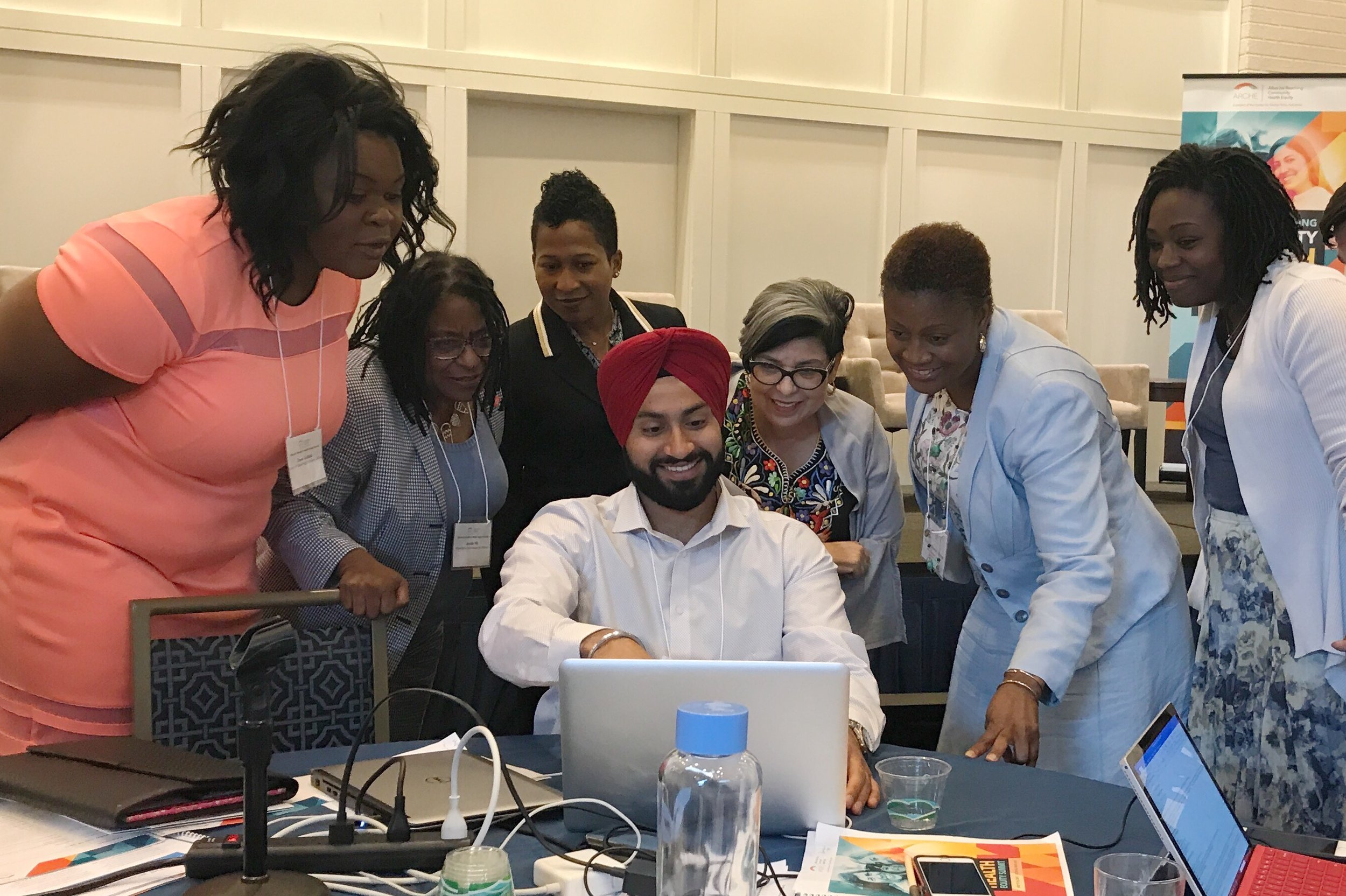

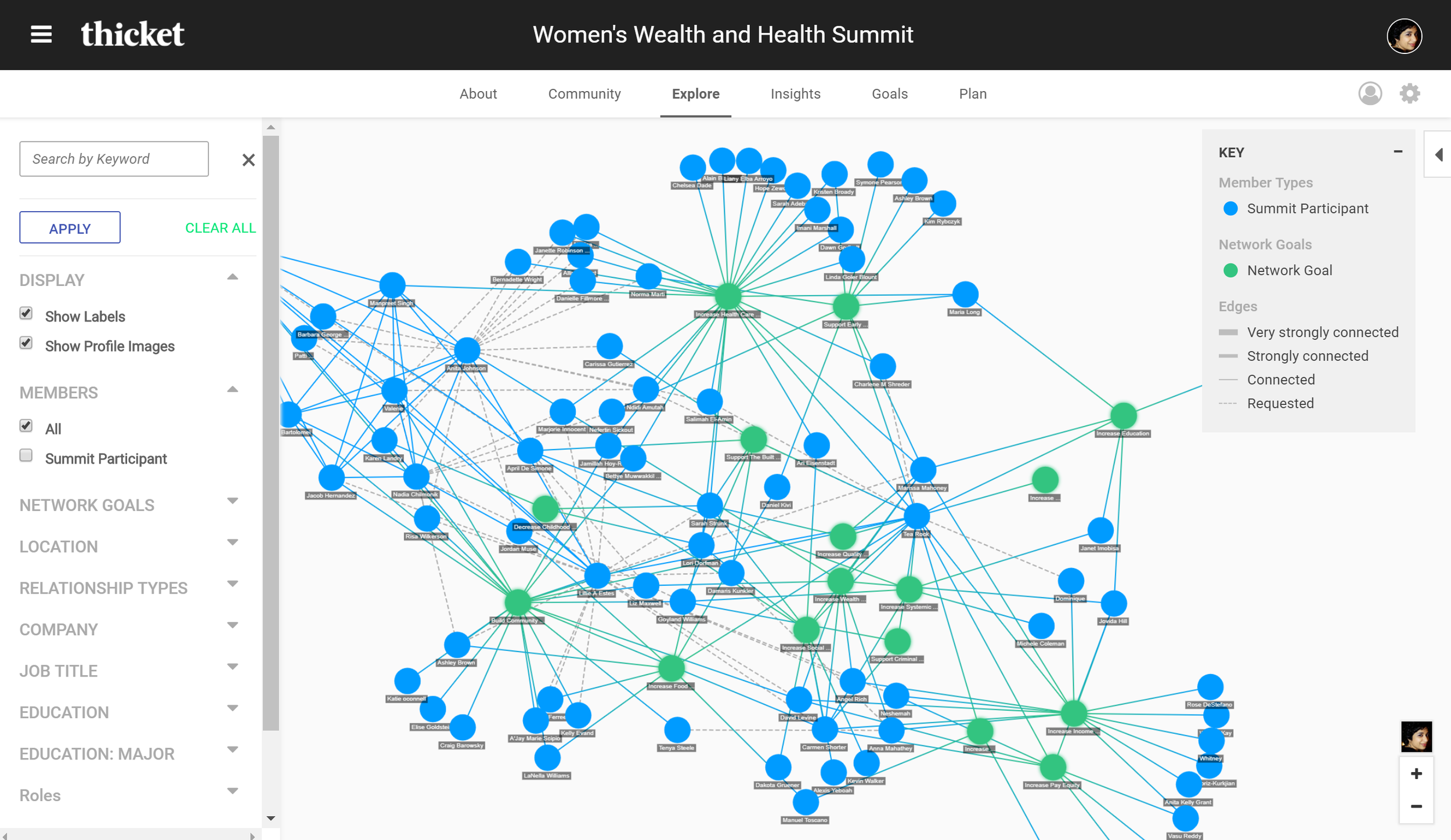

The Center for Global Policy Solutions, a policy advocacy organization dedicated to enhancing health equity and economic security, identified a critical need to address the systemic health inequities exacerbated by economic disparities, particularly those affecting women. Recognizing Thicket Labs' expertise in data-driven decision-making and collaborative problem-solving, the Center enlisted Thicket Labs to operationalize a comprehensive initiative aimed at catalyzing change in public health policy and practice. The initiative sought not only to facilitate dialogue among various stakeholders but also to translate these discussions into concrete policy agendas capable of driving real change.
The challenge was to bridge the gap between diverse stakeholders and synthesize a multitude of perspectives into actionable policy recommendations. The project aimed to tackle complex health equity issues through an innovative lens, addressing the nuanced ways in which economic factors like women's pay and wealth disparities impact health outcomes. The primary hurdles included facilitating meaningful collaboration among a wide array of experts, practitioners, and advocates, and translating these dialogues into a cohesive policy agenda.
I led a team of designers, developers, data scientists, and strategists at Thicket Labs to develop and implement a comprehensive strategy to meet these challenges:
Workshop Series: Thicket Labs orchestrated a series of workshops over four months, engaging over 250 participants nationwide. These sessions were designed to share knowledge, explore innovative solutions, and foster collaboration.
Collaborative Database Development: A pivotal component of the project was the development of a dynamic database to capture and share the wealth of strategies, insights, and practices discussed. This tool was instrumental in facilitating ongoing collaboration and knowledge exchange beyond the workshops.
Strategy Summit: The project culminated in a Strategy Summit, where participants divided into teams to develop, refine, and finalize comprehensive policy recommendations. This collaborative process was aimed at establishing a cohesive policy agenda that could unite funders, practitioners, and advocates.
Scenario Generation and Fine-Tuning: Utilizing the collaborative database, participants engaged in generating and fine-tuning scenarios for different policy agendas developed during the Strategy Summit. This innovative approach allowed for a dynamic assessment of potential outcomes, enabling participants to iteratively refine their recommendations based on projected impacts and feasibility.
The Health Equity Design Lab initiative led to significant achievements:
Broad Engagement: Successfully convened a diverse group of over 250 thought leaders, leveraging their collective expertise to address critical issues in health equity.
Unified Framework: Established a shared language and framework among participants, facilitating a focused and productive dialogue on health equity challenges.
Actionable Policy Agenda: Produced a comprehensive policy agenda that addresses women’s pay and wealth inequities through a health equity lens, supported by consensus among key stakeholders.
Innovative Solutions and Scenarios: The collaborative database not only served as a repository of insights and best practices but also as a platform for generating and refining policy scenarios, enhancing the robustness and adaptability of the policy recommendations.
